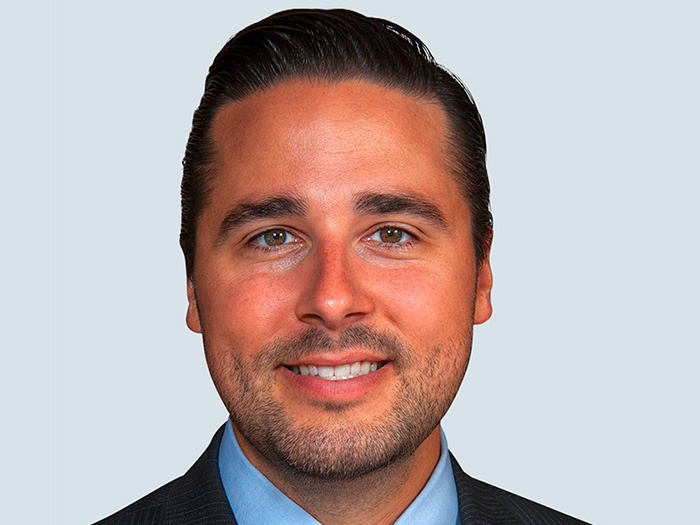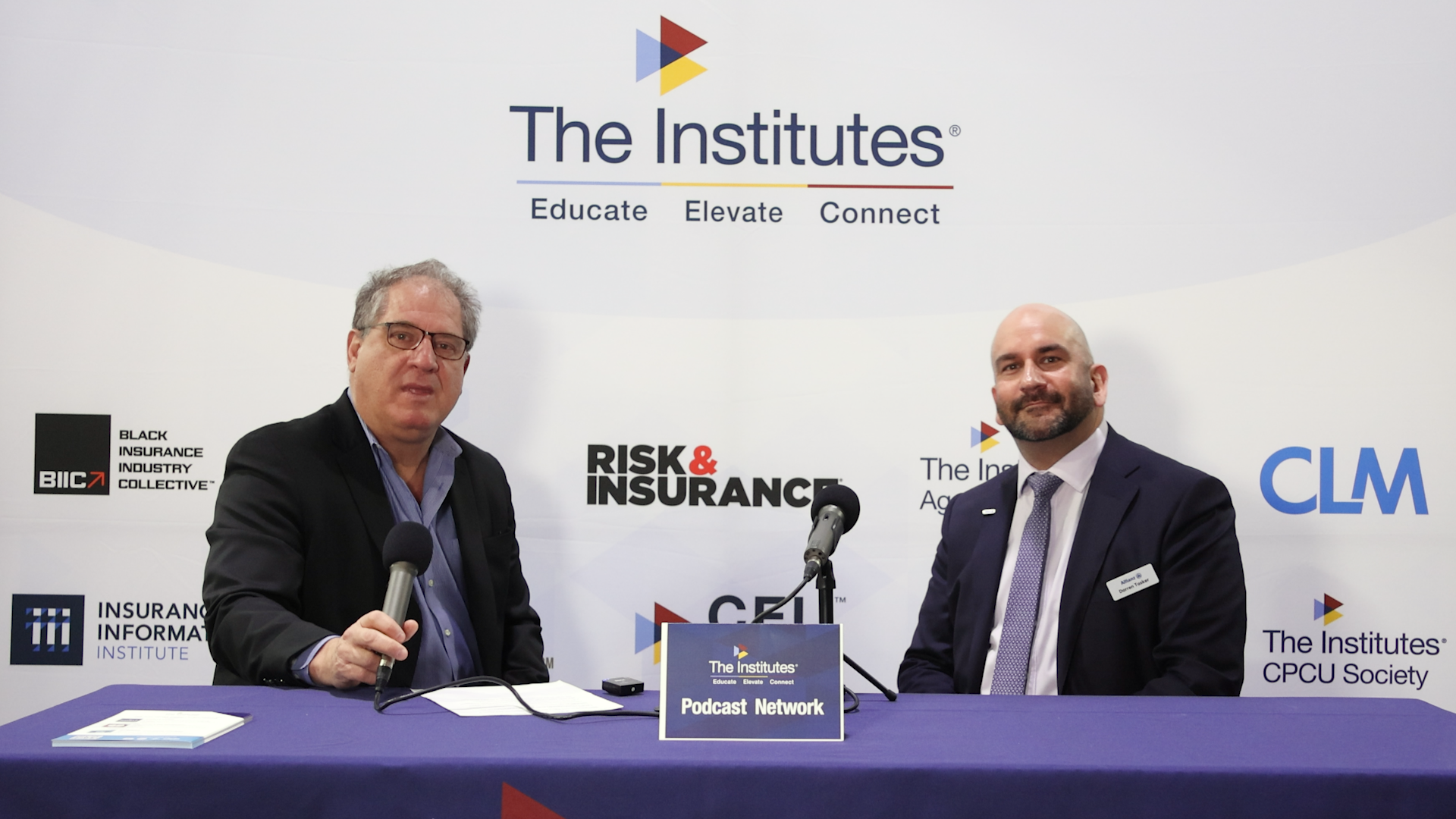Risk Strategies
Navigating Uncharted Waters

By properly analyzing big data, brokers and underwriters of professional liability and specialty lines can better predict what’s next on the horizon that could impact their clients.
That’s the genesis of this year’s theme for the 26th Annual International Conference of the Professional Liability Underwriting Society: Uncharted Waters of Emerging Risk: Knowledge is Power. The conference will be held this month in Orlando, Fla.
“The insurance industry has done a good job utilizing actuarial analysis in order to evaluate risks by not just looking through the rear-view mirror,” said Christopher Duca, 2013 PLUS Conference chair. Duca is president-elect of the trade group, and a specialty lines executive who formerly served as president of Navigators Pro at Navigators Group Inc.
“But with big data today, the industry has to make decisions in shorter periods of time, so the analysis looks at not just prior experience and current exposures, but is also more forward looking,” Duca said. “For example, risk managers, underwriters, reinsurers and brokers all have to figure out what’s happening in social media and technology, as the rate of change is moving very quickly.”
Cyber security within cloud computing is one such emerging risk, even for organizations that outsource data management to third parties, as they may still — to varying degrees — hold onto the liability, he said. Several conference sessions will address cyber liability risks, including a session featuring “cyber liability speed debates.”
Keynote speaker Dr. Erwann Michel-Kerjan of The Wharton School is slated to outline emerging risks with the U.S. Patient Protection and Affordable Care Act and its impact on the professional liability industry, Duca said. Another panel will discuss the potential impact of the rise of accountable care organizations due to the passage of the new law, as more physician and hospital networks share responsibility for coordinated care for more patients.
“What kinds of impact on the level of care would trigger potential claims frequency and severity going forward?” he asked. “It’s important for risk managers, underwriters and brokers to consider and start talking about the potential risk, so when they’re putting together insurance solutions, they understand the risk.”
In the session, Labor & Employment Litigation Update: The Good, The Bad & The Ugly, the hottest topics in employment law will be detailed via “an innovative format designed to educate and entertain,” said moderator Philip R. Voluck, managing partner of the Pennsylvania office of Kaufman Dolowich & Voluck LLP in Blue Bell, Pa. The panel, comprised of two defense attorneys, two brokers and two claims professionals, will each have two minutes to explain the issue they choose from a large board typically used in many television game shows.
NLRB Scrutiny Increases
Among the most controversial topics that will be discussed in the panel is the National Labor Relations Board’s increased scrutiny of corporate social media policies — even if targeted companies do not have union employees, Voluck said.
“According to the NLRB, an employee’s comments on Facebook blasting his company’s poor pay practices is likely protected, even if it’s against that company’s social media policy; the NLRB said that’s protected ‘concerted activity,’ ” he said. “Once the plaintiff’s bar catches up to the new risks posed by the NLRB, employers can expect new claims to surface over the suppression of employee free speech.”
The panel will also discuss risk management strategies designed to bring employers into compliance with new employment law and if claims arise, how to best manage them, Voluck said. It’s not unusual for a broker today to almost do a “pre-underwriting” of a potential insured to make sure everything is in place — that the client has an employee handbook; its managers and supervisors have been trained in equal employment opportunity compliance; it has an ongoing relationship with an employment attorney to use as a sounding board for difficult personnel decisions that may lead to potential exposure; and whether its social media policy “passes muster.”
The increasingly complex challenges of global companies — particularly as they enter emerging markets — will be discussed at a session titled Global D&O: Navigating the Exposures of Multinational Companies, moderated by Thomas Sheffield, Marsh Inc.’s FINPRO International leader.
“New risks that are coming online are the result of the globe becoming a smaller place. We’re all dealing with each other more and that’s a good thing — it’s exciting.”
— Thomas Sheffield, FINPRO international leader, Marsh Inc.
For example, countries such as India and Italy have adopted new legal frameworks around corporate governance, Sheffield said. Company directors, officers and even employees working in those countries need to adhere to those countries’ corporate governance rules, and as such, companies need to build that into their overall governance structures.
“These challenges are having some people lay awake at night, but not all of this is a bad thing,” he said. “New risks that are coming online are the result of the globe becoming a smaller place. We’re all dealing with each other more and that’s a good thing — it’s exciting.”
E&O Boundaries Shifting
The expanded responsibilities of insurance agents and brokers in the eyes of the court is the topic of the session, Insurance Agents E&O: Wait, Wait, There’s a Duty to Do What?, moderated by Peter Biging, a partner at Goldberg Segalla LLP in New York City. The session will be based on the format of the National Public Radio program “Wait, Wait, Don’t Tell Me,” and is designed to be “fun, informative and interactive with the audience,” Biging said.
For many years, agents and brokers were largely viewed by courts as “order takers,” who were simply there to purchase what their clients instructed, he said. In the last 20 years, however — and in the last decade in particular — courts have shown an increasing willingness to take a much more expansive view of the role of the agent and broker, and recognize that they are relied upon for their specialized expertise.
“Now, courts are far more open and receptive to arguments about why in a particular instance an agent or broker should have given advice to the insured, or led the insured to have a misconception about the coverage that was in place, or otherwise owed a duty to provide advice and guidance with respect to the sufficiency of the coverage purchased,” Biging said. “This is an area in which much of the litigation regarding alleged errors and omissions by agents and brokers is fought, and it is an area the boundaries of which seem to be constantly shifting.”
He gave one possible scenario: A broker submits an insurance policy for a restaurant, and in the application the insured represents that no more than 25 percent of its operations involve the sale of alcohol and activities that would typically be undertaken by nightclubs. But it is subsequently learned after a loss that the restaurant regularly hosts dance nights and other events at which alcohol is sold, and generates significant revenue from these operations.
After a patron leaves drunk and is injured in an accident, the insurer sues for declaratory relief, Biging said. Not only that, the insurer sues the broker, claiming he knew or should have known that the application misrepresented the business’ operations, and sues the broker for its costs in having to defend the claims against the restaurant by the party injured by the patron, and in having to sue to obtain declaratory relief.
“Should the broker be responsible to the insurer for the misrepresentations made on the application by his insured?” he asked.
Not in all cases, Biging said. When faced with significant uninsured losses, it is not unusual for insureds to blame their agents or brokers for not doing more to protect them, when they knew full well the risks they were and weren’t insured against. The danger of placing responsibility on the agent or broker to ensure their clients are advised concerning every possible contingency is that it would essentially make agent/broker errors and omission coverage “de facto excess liability insurance” for any insured who decides to take the minimum insurance available, and rely on the agent’s or broker’s E&O coverage as their backstop.
“In other words, it would promote bad behavior by the insureds, and at the same time make the job of the insurance agent and broker impossible,” Biging said.
The panel of underwriters, brokers and E&O claims administrators will discuss what can be done to address “the realities of our new circumstances” and try to avoid claims and reduce exposures, he said.
The conference’s opening general session will feature Madeleine Albright, William Cohen and Karen Hughes outlining their take on current and emerging global risks. Albright was the first woman to become secretary of state, serving under President Bill Clinton. She currently is a professor of international relations at Georgetown University’s Walsh School of Foreign Service.
Cohen served as both a congressman and senator from Maine, and as secretary of defense under Clinton. Hughes was former campaign director and counselor for President George W. Bush, who then served as under secretary of state for public diplomacy and public affairs in the Department of State with the rank of ambassador — a job focused on changing foreigners’ perceptions of America. Hughes is now the global vice chair of PR firm Burson-Marsteller.










